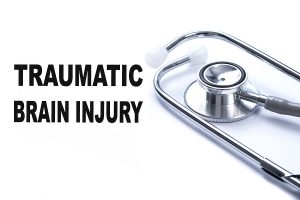Did I Suffer A Traumatic Brain Injury In My Car Accident?
 Michael Babboni
Insurance Coverage
Personal Injury
Traumatic brain injuries are one of the most devastating and complicated injuries a person can experience in a St. Petersburg car accident. Unfortunately, they’re also one of the most common. These injuries can vary from mild to severe, and it may not be immediately apparent that you’ve suffered a traumatic brain injury in the first place. Mild traumatic brain injuries, or TBIs, can have no outward signs, no loss of consciousness, and no initial symptoms, and they can even be caused without making direct impact with any surface. A strong bout of whiplash in a “fender bender” type car accident can be enough to cause a mild to moderate traumatic brain injury alone.
Michael Babboni
Insurance Coverage
Personal Injury
Traumatic brain injuries are one of the most devastating and complicated injuries a person can experience in a St. Petersburg car accident. Unfortunately, they’re also one of the most common. These injuries can vary from mild to severe, and it may not be immediately apparent that you’ve suffered a traumatic brain injury in the first place. Mild traumatic brain injuries, or TBIs, can have no outward signs, no loss of consciousness, and no initial symptoms, and they can even be caused without making direct impact with any surface. A strong bout of whiplash in a “fender bender” type car accident can be enough to cause a mild to moderate traumatic brain injury alone.Traumatic brain injuries need to be evaluated by medical professionals for a few reasons. First and foremost, only a medical professional can diagnose a traumatic brain injury, and only they can grade your injury along with the effects it may have on you in the future. If you wish to seek compensation for a traumatic brain injury incurred in a Florida car accident, your medical reports will serve as the foundation for your case.
Signs And Symptoms Of A Traumatic Brain Injury
Traumatic brain injuries may cause a myriad of different symptoms after a car accident and even the most experienced medical professionals aren’t perfect 100% of the time. If you’ve been in an accident and medically evaluated, but you experience the symptoms of a traumatic brain injury after the fact, you may wish to be re-evaluated by a doctor to determine if you have an injury that they may have initially missed. Additionally, it’s not uncommon for moderate traumatic brain injuries to be diagnosed as mild at first until more symptoms show themselves later on.
Some common signs and symptoms of a traumatic brain injury are:
• Cognitive symptoms – Cognitive symptoms are experienced with mild, moderate, and severe traumatic brain injuries alike. One may experience brain fog, difficulty thinking clearly, difficulty concentrating, and memory issues in the days or weeks after their accident has occurred. If you experience any of these symptoms, it’s important to be evaluated or re-evaluated by a medical professional right away.
• Physical symptoms – The brain is the control center for the entire body, and it makes sense that a brain injury can spread symptoms all throughout various body systems. Nausea, headache, blurry vision, balance issues, sensitivity to sound, and feelings of fatigue or lack of energy are common signs of a traumatic brain injury.
• Emotional symptoms – Emotional symptoms are also common in traumatic brain injury cases. A person may feel anxiety, sadness, irritability, or depression in the time following a traumatic brain injury. In mild to moderate cases, these may clear up on their own in a couple of weeks but the changes could be permanent in injuries that are more severe.
• Sleep symptoms – Traumatic brain injuries can also have a direct effect on your sleep. One may find they’re suddenly sleeping more or less than usual, they have trouble falling asleep, and they experience vivid dreams following a traumatic brain injury.
What To Do
If you suspect your accident has lead to a traumatic brain injury and a medical professional confirms your suspicion, your next step should be contacting an experienced Florida personal injury attorney. Your attorney will be able to handle your complex case to ensure you get the compensation you deserve.
